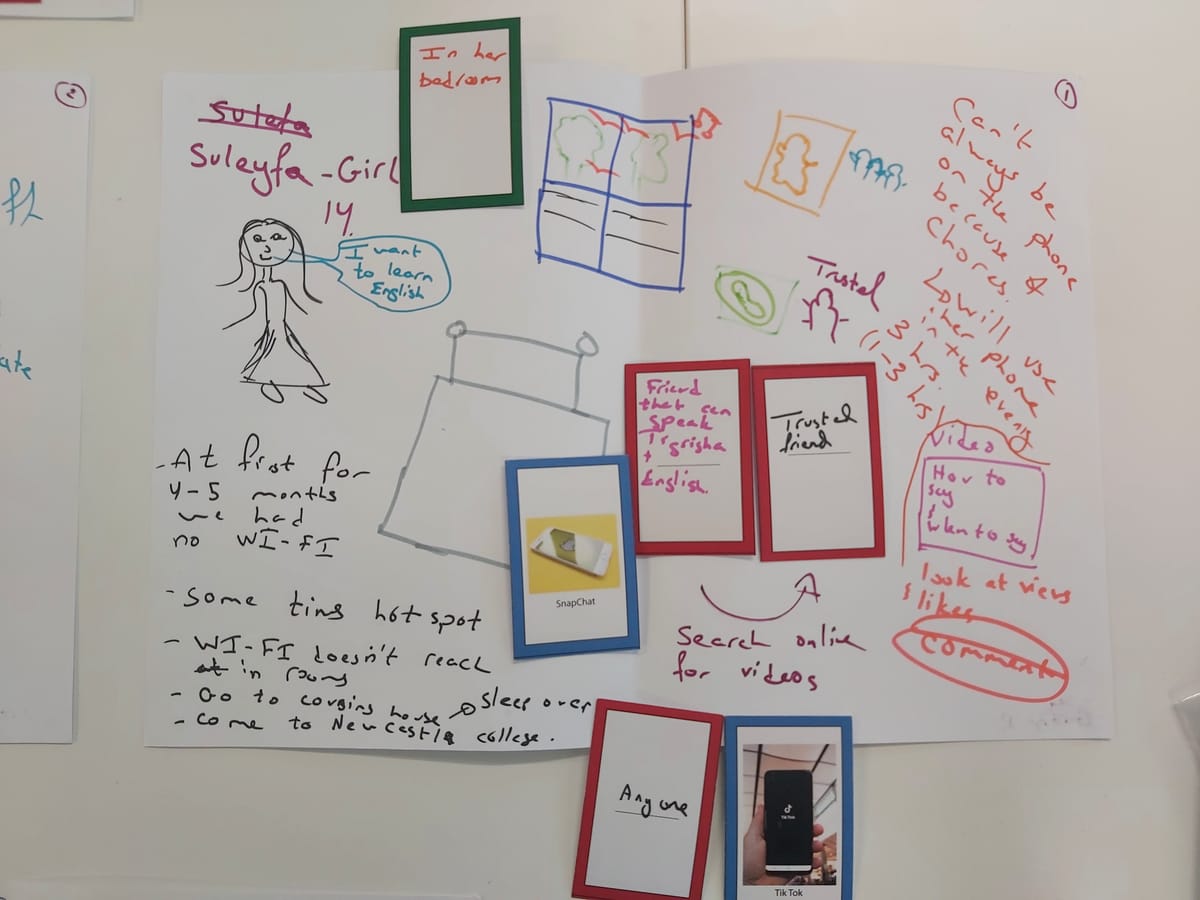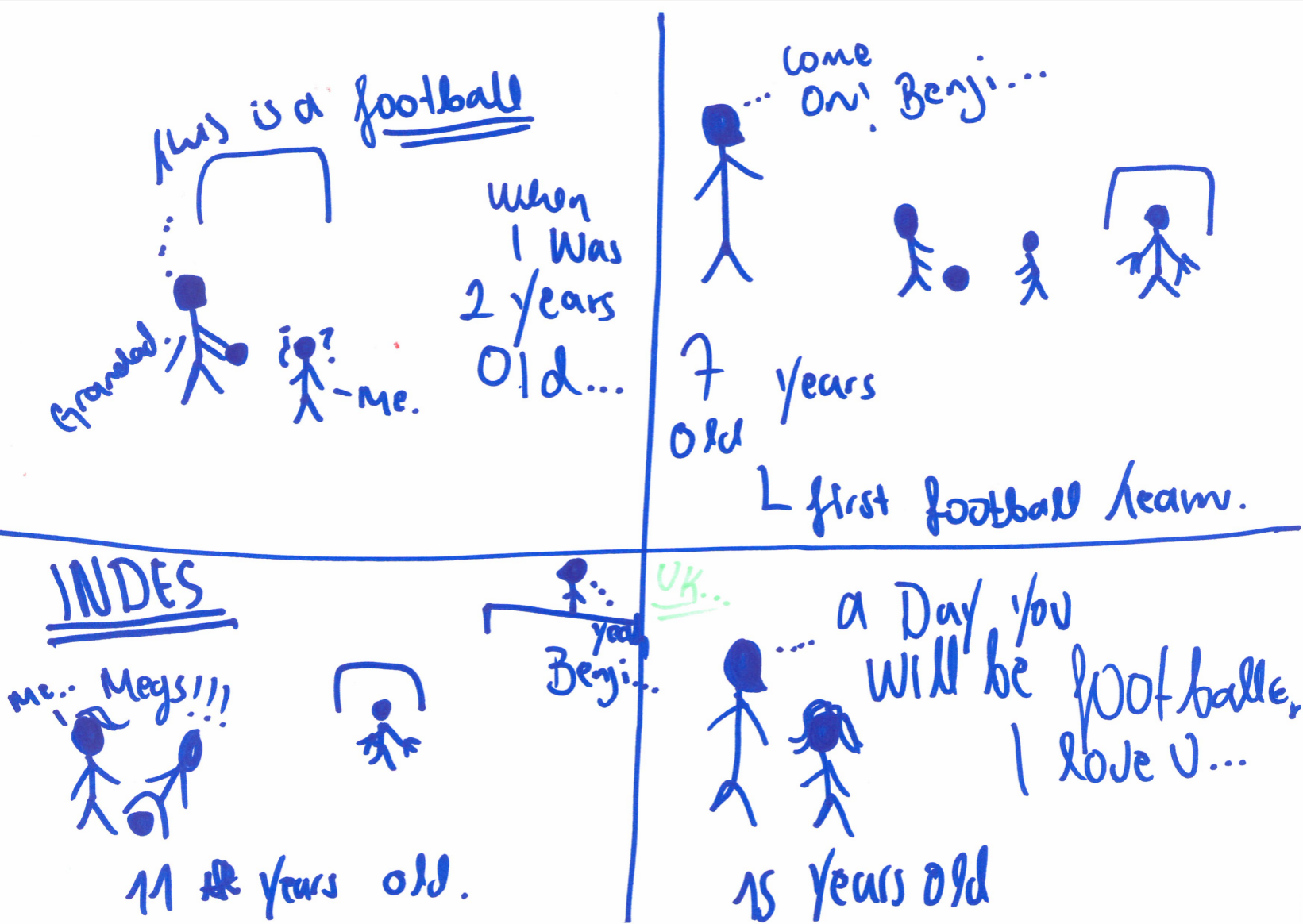Self-Organised Learning Environments for Young Refugees and Asylum Seekers
This project aims to explore Self-Organised Learning Environments (SOLEs)* as a safe learning environment at university to mitigate the impacts of young refugees and asylum seekers’ (YRAS) difficulty accessing formal education and in the early stages of joining formal education.

The project seeks to understand the YRAS’ current use of technology, especially for learning. It also seeks to explore configurations of SOLEs to continue or complement the YRAS’ education and co-design the learning experience with them.
*SOLEs are a form of dialogical, inquiry-based learning in which learners lead the exploration of open, engaging and/or provocative questions under the guidance of teachers.
This project is collaboration between Denise Lengyel and Ahmed Kharrufa from Open Lab, Reem Refaat Talhouk from the School of Design at Northumbria University, Bridget Lara Stratford and Haley Powers from North-East Solidarity and Teaching at Newcastle University and James Stanfield from the School of Education, Communication and Language Sciences at Newcastle University.
It addresses barriers related to language and accessing formal schooling which young refugees and asylum seekers (RAS) in the UK face. Thus, it contributes to HCI research on migration work with young RAS and on use of digital platforms to support them outside school.
In the first phase of this project, we ran three co-design workshops with 10 YRAS, who were 11 to 15 years old and came to the UK from Eritrea, El Salvador, Turkey, and Kurdistan. In these workshops, we explored the questions “Which social and contextual factors influence the ability of young RAS in the UK to engage with digital learning interactions?" and “How do these factors influence their engagement in and experiences with digital tools to learn and develop their learning skills outside of school?”. We did this through participatory arts-based methods, where the YRAS engaged in draw-write-tell with sentence completion, cue-card-supported visual storytelling, roleplay, and creating comic-like pupil view templates.

Our findings show that we need to consider:
- learning approaches that may underpin such technologies, e.g. location-based approaches
- timing and duration of digitally facilitated learning activities and how these are can depend on aspects related to gender and culture
- platforms through which learning activities may be mediated and how they can carry the risk of issues of gender and racism
- and remember the risk of reduced engagement and propagating existing gender inequities
What impact did it have?
We published and presented a paper on our findings at INTERACT’23. This paper was also presented at the HCI Seminar of the Department of Applied Information Technology, University of Gothenburg in Sweden. Together with researchers from Germany, Finland and Australia, we also published a paper reflecting on the role of intangible cultural heritage and socio-cultural cohesion and inclusion in projects like this. We are also involved in a follow-up project on SOLEs with Reem Refaat Talhouk from the School of Design at Northumbria University and Bridget Lara Stratford from Action Foundation. This will explore SOLEs for YRAS outside formal schooling, focusing on STEM and AI literacy.
- Lengyel, Denise, Ahmed Kharrufa, James Stanfield, Haley Powers, Bridget Lara Stratford & Reem Talhouk. Gender & Racism: Considerations for Digital Learning Among Young Refugees and Asylum Seekers. In: Abdelnour Nocera, J., Kristín Lárusdóttir, M., Petrie, H., Piccinno, A., Winckler, M. (eds) Human-Computer Interaction – INTERACT 2023. INTERACT 2023. Lecture Notes in Computer Science, vol 14144. Springer, Cham. https://doi.org/10.1007/978-3-031-42286-7_26
- Hirsch, Linda, Siiri Paananen, Denise Lengyel, Jonna Häkkilä, Georgios Toubekis, Reem Talhouk, Luke Hespanhol. HCI Advances to Re-contextualize Cultural Heritage toward Multiperspectivity, Inclusion, and Sensemaking. In: Special Issue "Advances in Human–Computer Interaction (HCI): The Relational Turn". MDPI Applied Sciences. https://doi.org/10.3390/app14177652